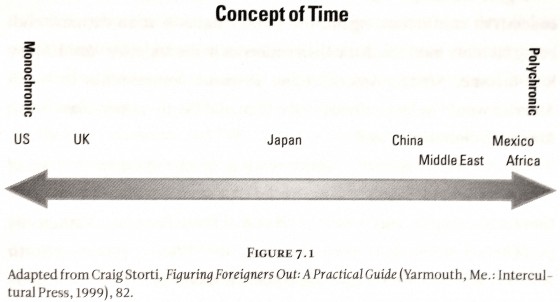 Concluding the review of this excellent book we shall now look at one very practical application.
Concluding the review of this excellent book we shall now look at one very practical application.
Short term mission teams.
Like the story of the elephant and the mouse dancing together at a celebration – both benefit and enjoy it until the mouse is squashed – such can also be the effect of a short-term mission team. Who is really benefitting? Perhaps neither. The team have a ‘life changing experience’ – but may learn the wrong things. The hosts can feel crushed.
At the root of the problem is lack of sensitivity to others’ cultures eg “Mine is the plumbline so any deviation is ‘wrong'”. Consider time. In the ‘west’ time = productivity; the emphasis is on good stewardship and using every minute productively. In the majority world there is a polychronic view (in contrast to monochronic) – time is not limited and is there to strengthen community. The USA would be at one extreme of a continuum, Africa at the other.

A similar ‘spread’ occurs on the ‘concept of self‘ continuum – the contrasting roles of the individual and the group in shaping society. This is particularly pertinent with the way the gospel is expressed – ‘Jesus and me’ vs the church community. Recognising these two examples (and there are many more) highlights the potential pitfalls in one culture visiting another and assuming their own experience is ‘norm’.
Applying this in a practical scenario, a visiting team wants to maximise the benefits of the time it is visiting – several evangelistic meetings, put up a classroom, carry out a clinic etc – all in the space of two weeks. But that is not Development. Development is a lifelong process not a two week product. The receiving culture wants to get to know you, not get a job done. The danger is that the visitors ‘take over’ in order to get the job done – and cause great offense in so-doing.
What about the material contribution?
No receiving culture is going to refuse a free handout – but the teachers left behind in the school have an uphill task when they cannot give the same prizes as the visiting teams gave, because they do not have the resources. But, the children now see them as inadequate.
Invitation
How did the opportunity first arise? In reality, if teams act unsympathetically the receiving culture would probably prefer to be given the money in funding the team than having the people visit! So, it is important that the team is invited by – not imposed on the other culture. And the team must be thoroughly prepared before departure.
Money-power
In all this it is important to recognise that Money = Power and Influence. Those with money often fail to recognise this; it is normal for them to be the decision makers. But for those without, they do not have the ability to resist the pressure associated with money-power.
How to do it
In addressing these issues the authors do not ‘throw the baby out with the bath water’ – they offer wise advice how to mitigate against the negative effects of teams. I have interpreted these a little for the Newfrontiers culture.
1. Prepare thoroughly in cross cultural matters
2. Make sure the receiving church genuinely has the option to say ‘no’ to receiving a team
3. Ensure the team is about learning from the hosts not about giving. There will be opportunity to give but going as learners is a healthier attitude. (NB Life Change Teams were created specifically for this purpose – to learn about wrong attitudes etc and to be taught by those ‘in country’.)
4. Ensure that any ‘doing’ is alongside the local people and run by them. Do not become paternalistic and take over.
5. Keep the team small. You will do less damage that way! Also, hosting a large team is very draining on local resources – both finance and effort.
6. Do not project the visit as a ‘holiday’. There will be plenty of interesting things to see and do but it is insulting for the hosts to feel you are using them in this way.
7. Training. This is needed as an intentional planned programme before, during and after the visit. It should be thorough and detailed if the visit is going to be truly life-changing in a positive way.
A final challenge: Would you be prepared to send a similar team into an inner city low cost housing environment in your own country? That is just as much of a life-changing, learning experience and mission opportunity – and costs a lot less to achieve!
This book is very practical and insightful. I strongly recommend it.
